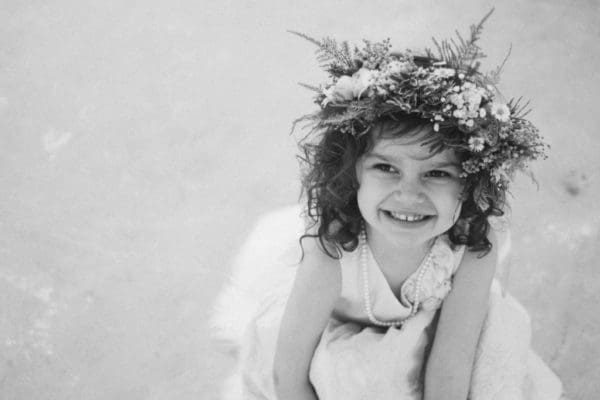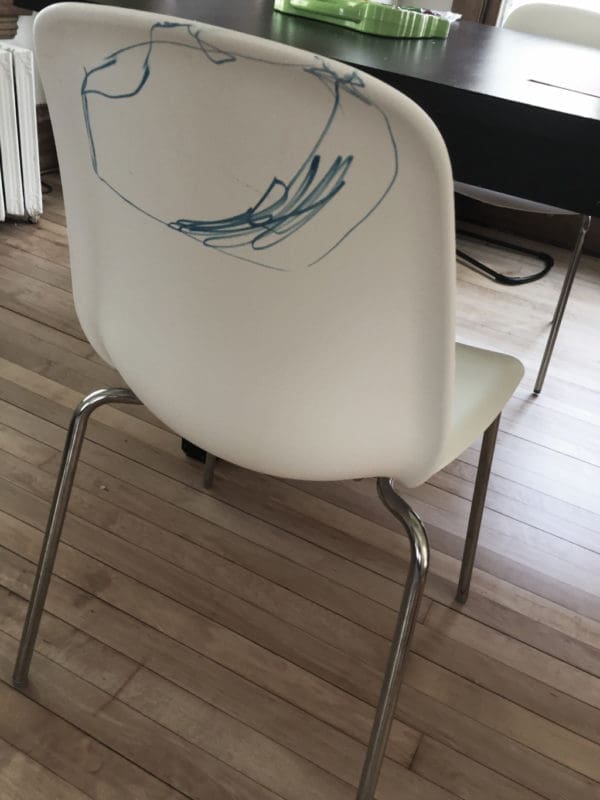
It was a passing comment, but it weighed a lot. “I wish she wasn’t using a pacifier. She wouldn’t be using one… I mean, I didn’t want her using one, but… well, we ended up needing to.” Almost apologetic, my friend prefaced putting the pacifier in her child’s mouth, giving us the full disclaimer to ward off any pending judgment.
It happened when my toddler was acting particularly rambunctious and all kinds of crazy, and I said to our guests, “She doesn’t normally behave like this, but she didn’t nap today. And then she had extra stimulation from visitors yesterday. So she’s a little off right now.”
It was the time that I took my children to the library, trying to grab just-right books and make sure my baby didn’t swallow any of the alarmingly small toys lying on the floor, when my toddler screamed at the top of her lungs at another boy nearby… and the moms sitting on the side made audible, disapproving “hmmm” noises at me and my girls.
Three very different scenarios, but one common thread- an embarrassed mom.
In the first scene, a mom embarrassed about her parenting choice to use a pacifier. In the second and third scene, a mom embarrassed about her child’s behavior. And in all three scenes, a mom saying, “I/we are not really like this. We’re better than this. My parenting is top notch. You’re catching us at an exceptional time. Normally, we’re rocking this whole thing.”
I have done it far too often, and I have caught my parent friends doing the same thing- we are making excuses for our children and for ourselves.
So what’s the big deal?

Option 1: It reveals that we may have wrapped our worth and our identity as a person into our performance as a mom. I am embarrassed about my toddler’s behavior because I ultimately believe that it says something about me. When my toddler misbehaves, it’s not an incident to deal with; rather, it’s an indictment on who I am. I am judging myself on how good I am performing. I couldn’t just let my daughter be a little nuts that evening, because I felt it reflected deeply on me.
I believe that is a lie that is deeply incorrect. We are more than our struggles and our triumphs. We are more than isolated incidents; more than our ability to pass a test of discipline or toddler behavior modification. We are whole people, and our performance is not the sum of who we are.
We are more than our performance. Our performance ebbs and flows; we are sometimes on our A game and sometimes barely hanging onto our D game, but to reduce our worth to this measure is to try and measure up to a standard that we simply cannot meet.
Not only that, but seeing ourselves through this lens is also an unreasonable burden for our children to carry. All of the sudden, my daughter is not just a three-year old testing her willpower, but she is a little being whose behavior swings her mom to and fro: from proud to embarrassed to joyous to ashamed. This little girl wasn’t made to shoulder that. She was made to be a child. She was not made to be the determiner of who I am; that is too great a weight for her to carry.
Have you caught yourself embarrassed of your child or embarrassed of a particular choice you’ve made as a parent? Have you caught yourself excusing it aloud, giving disclaimers, trying to pass it off as an anomaly to your normal greatness? Have you caught your shoulders tensing and your face blushing as though who you are is being called into question, as though your very worth was up for debate in the moment? Have you noticed your child watching your reaction, sensing that his/her behavior can determine your reaction?
If this describes you (as it certainly has described me), I challenge you to reflect on this question: What defines you? What determines your worth? Is it your ability as a mother? If so, is that an appropriate measure? And if not, Who or What gets to say who you are? Bring this question to other people you trust, and reflect together.
Option 2: It reveals that we might be putting off real responsibility in front of us. If my toddler consistently throws tsunami tantrums every time we go grocery shopping, but I always make excuses for him/her rather than acknowledge the pattern, I might be missing an opportunity to train my child on grocery store decorum. Maybe my child misbehaves whenever I try and cook dinner because I haven’t helped her learn how to deal with her energy while I’m occupied with the stove. Maybe my child acts like a loon whenever new people come over because she’s nervous; rather than make excuses for her aloud, what would happen if I noticed and entered into her world instead? Maybe you are constantly making disclaimers about how well/how poorly your child sleeps, rather than embracing your method or current reality.
Excuses and embarrassment- they’re all about me, not about my child. Accepting responsibility can be difficult and humbling, but it can also be helpful and freeing. Is there a parenting choice that you’re constantly explaining away? Is there a recurring scenario where your child consistently loses his/her cool and you lose your calm? Is there an opportunity to perhaps deal with these realities: maybe grieve a change in expectation or identify a problem area to train for? Is there someone you could ask to weigh in with an alternative perspective?
I’m rewinding to that night when we had friends over: envisioning my friend popping that pacifier into her baby’s mouth without disclaimer; imagining me enjoying rather than rattled by my toddler’s rambunctiousness; seeing myself emboldened to recognize recurring behavior issues; envisioning conversation where we talk together about worth and identity, about letting some things go and accepting responsibility for others. Maybe it’s a bit idealized. But I’m excited about the idea of walking slowly, together, in that direction.
